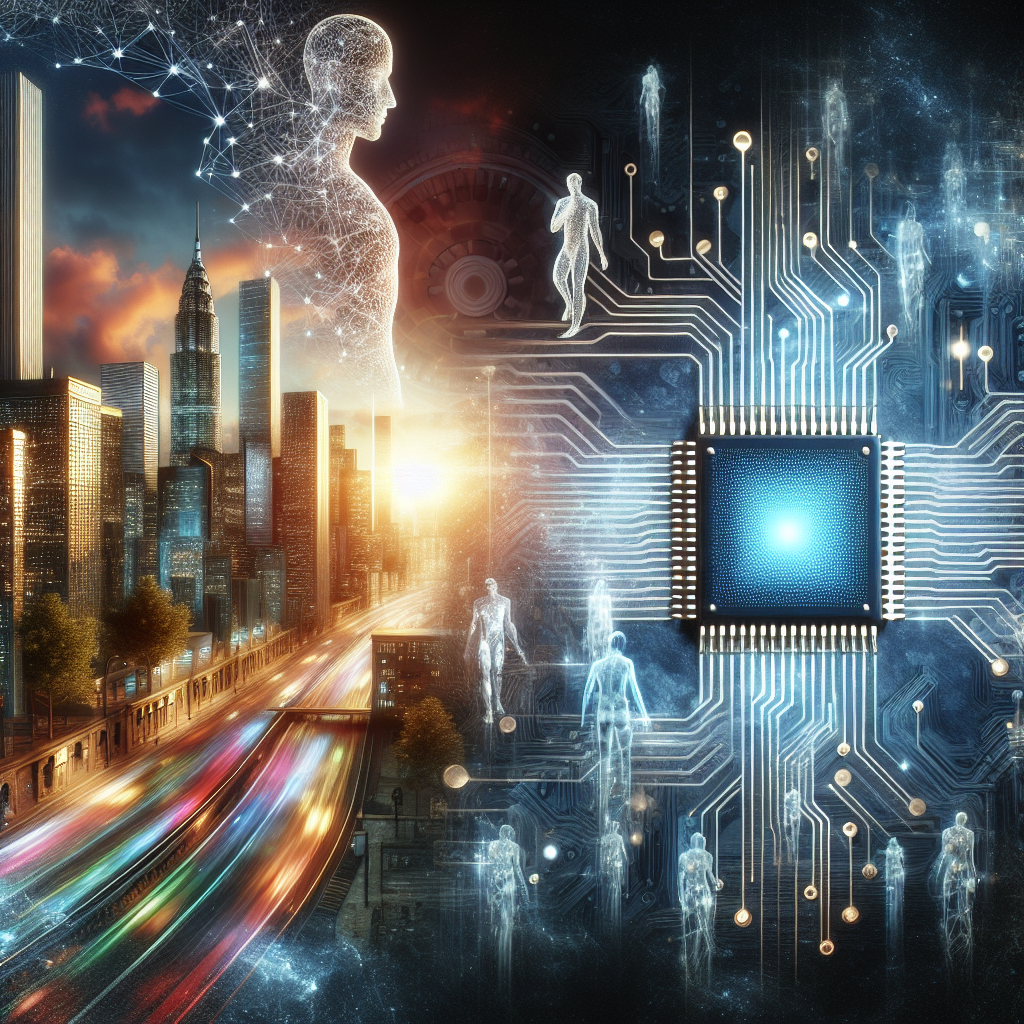Artificial General Intelligence (AGI) is a term that refers to the development of intelligent machines that have the ability to perform any intellectual task that a human can do. This technology has the potential to revolutionize the way we work, live, and play in ways that were once thought to be science fiction.
AGI has the potential to transform the way we work by enhancing productivity and efficiency in various industries. With the ability to automate tasks that are currently performed by humans, AGI has the potential to streamline processes and improve overall efficiency. For example, in the healthcare industry, AGI can help doctors diagnose diseases more accurately and quickly, leading to better patient outcomes. In the finance industry, AGI can help analysts make more informed investment decisions by analyzing vast amounts of data in real-time.
In addition to improving productivity, AGI has the potential to create new job opportunities in fields that have not yet been imagined. As machines become more intelligent, they will be able to take on tasks that are currently beyond the capabilities of humans. This will create new industries and job opportunities for individuals who possess the skills to work alongside intelligent machines.
AGI also has the potential to transform the way we live by improving the quality of our everyday lives. For example, AGI can be used to develop smart homes that can anticipate our needs and adjust the environment accordingly. This can include adjusting the temperature, lighting, and even the music based on our preferences. AGI can also be used to develop personalized healthcare solutions that can monitor our health in real-time and provide personalized recommendations for improving our well-being.
Furthermore, AGI has the potential to revolutionize the way we play by creating immersive gaming experiences that are indistinguishable from reality. With AGI, game developers can create virtual worlds that are populated with intelligent characters that respond to our actions in real-time. This can create a more engaging and interactive gaming experience that blurs the line between reality and virtual reality.
Despite the potential benefits of AGI, there are also concerns about the impact that this technology may have on society. One of the primary concerns is the potential for AGI to surpass human intelligence and become uncontrollable. This could lead to a scenario where intelligent machines have the ability to make decisions that are harmful to humans.
There are also concerns about the impact that AGI may have on the job market. As machines become more intelligent, there is the potential for them to take over tasks that are currently performed by humans, leading to widespread unemployment. This could result in social unrest and economic instability if not properly managed.
In order to address these concerns, it is important for policymakers and industry leaders to work together to develop ethical guidelines for the development and deployment of AGI. This includes ensuring that intelligent machines are designed with built-in safeguards to prevent them from causing harm to humans. It also includes developing policies to ensure that the benefits of AGI are distributed equitably across society.
Despite these challenges, the potential benefits of AGI are vast and have the potential to improve the way we work, live, and play in ways that were once thought to be impossible. By working together to address the ethical and societal implications of AGI, we can harness the full potential of this transformative technology.
FAQs
Q: What is the difference between AGI and artificial intelligence (AI)?
A: Artificial General Intelligence (AGI) refers to the development of intelligent machines that have the ability to perform any intellectual task that a human can do. Artificial Intelligence (AI) refers to the development of intelligent machines that are designed to perform specific tasks, such as speech recognition or image classification.
Q: How far away are we from achieving AGI?
A: The timeline for achieving AGI is uncertain, as it depends on a variety of factors, including technological advancements and research funding. Some experts predict that we may achieve AGI within the next few decades, while others believe that it may take much longer.
Q: What are the potential benefits of AGI?
A: The potential benefits of AGI include improving productivity and efficiency in various industries, creating new job opportunities, enhancing the quality of our everyday lives, and revolutionizing the way we play through immersive gaming experiences.
Q: What are the potential risks of AGI?
A: The potential risks of AGI include the potential for intelligent machines to surpass human intelligence and become uncontrollable, leading to harmful decision-making. There are also concerns about the impact that AGI may have on the job market, leading to widespread unemployment.
Q: How can we address the ethical and societal implications of AGI?
A: It is important for policymakers and industry leaders to work together to develop ethical guidelines for the development and deployment of AGI. This includes ensuring that intelligent machines are designed with built-in safeguards to prevent them from causing harm to humans and developing policies to ensure that the benefits of AGI are distributed equitably across society.

